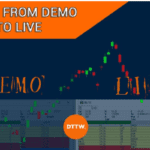How to Keep Improving as a Forex Trader
Forex trading is a journey of continuous learning and self-improvement. The most successful traders constantly refine their strategies, adapt to market changes, and develop stronger discipline. Whether you are a beginner or an experienced trader, there are always ways to enhance your skills. Here’s a step-by-step guide on how to keep improving as a forex trader.
1. Develop a Growth Mindset as a Forex Trader
Why It’s Important: A fixed mindset leads to frustration and stagnation, while a growth mindset keeps you open to learning and adapting.
How to Apply It:
- Accept that losses are part of the learning process.
- Focus on progress over perfection—each trade is an opportunity to improve.
- Stay curious and always look for new insights.
2. Keep a Trading Journal
Why It’s Important: A trading journal helps you analyze your strengths, weaknesses, and patterns in your trading behavior.
How to Apply It:
- Record each trade, including entry/exit points, reasons for taking the trade, risk-reward ratio, and emotions at the time.
- Review your journal weekly or monthly to identify what’s working and what needs improvement.
- Adjust your trading plan based on journal insights.
3. Master Risk Management
Why It’s Important: Even the best strategies can fail if risk is not managed properly. Protecting your capital ensures longevity in trading.
How to Apply It:
- Never risk more than 1-2% of your capital on a single trade.
- Use stop-loss and take-profit orders to limit potential losses.
- Diversify your portfolio to avoid overexposure to a single currency pair.
4. Stay Updated on Market News & Trends
Why It’s Important: Economic events and global news influence forex markets. Ignoring them as a forex trader can lead to unexpected losses.
How to Apply It:
- Follow an economic calendar for important events like interest rate decisions, inflation reports, and GDP data.
- Stay informed about global economic conditions that impact currency movements.
- Learn to interpret news reports and how they affect forex prices.
5. Backtest and Optimize Your Strategy
Why It’s Important: Backtesting helps determine whether your trading strategy is effective before risking real money.
How to Apply It:
- Use historical data to test your strategy on different market conditions.
- Analyze performance metrics like win rate, drawdown, and risk-reward ratio.
- Make necessary adjustments and improve weak points.
6. Learn from Experienced Traders
Why It’s Important: Mentorship and networking can accelerate your learning curve and expose you to new strategies.
How to Apply It:
- Follow professional traders on social media, blogs, or YouTube.
- Join forex trading communities where traders share ideas and insights.
- Consider taking online courses or webinars to learn advanced trading techniques.
7. Improve Trading Psychology & Emotional Control
Why It’s Important: Emotional trading leads to poor decision-making and unnecessary losses.
How to Apply It:
- Develop a trading routine to minimize impulsive decisions.
- Set realistic goals and avoid the pressure to get rich quickly.
- Practice meditation, exercise, or journaling to manage stress.
8. Adapt to Market Changes as a Forex Trader
Why It’s Important: The forex market is constantly evolving, and rigid strategies can become ineffective over time.
How to Apply It:
- Be flexible—adjust your strategies based on market conditions (e.g., ranging vs. trending markets).
- Experiment with different trading styles, such as scalping, swing trading, or day trading.
- Stay open to learning new indicators and techniques.
9. Use Technology to Your Advantage
Why It’s Important: Trading tools can improve accuracy and efficiency.
How to Apply It:
- Use trading platforms with advanced charting and analysis features.
- Set up alerts and automated trading to execute trades efficiently.
- Learn how to use AI-powered trading bots and signals for additional insights.
10. Be Patient and Stay Disciplined as a Forex Trader
Why It’s Important: Trading success is a marathon, not a sprint. Many traders fail due to impatience and lack of discipline.
How to Apply It:
- Stick to your trading plan instead of making emotional decisions.
- Focus on long-term consistency rather than quick profits.
- Take breaks when needed to maintain a clear and rational mindset.
Final Thoughts on How to Keep Improving as a Forex Trader
Improving as a forex trader requires discipline, education, and adaptability. By keeping a trading journal, mastering risk management, learning from experts, and refining your strategy, you can increase your chances of long-term success.



